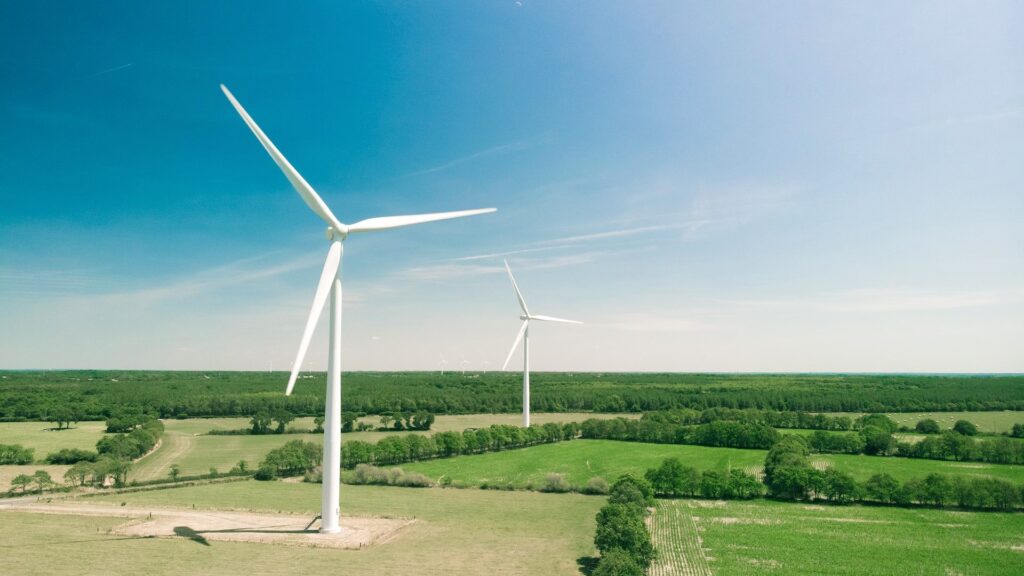A cross-party group of MPs is calling on the government to address “significant gaps” in its plans to deliver a clean energy transition.
In a new report released yesterday (5 January), The Environmental Audit Committee (EAC) sets out actionable steps to accelerate the UK’s independence from fossil fuels, and calls for a ‘war effort’, on energy efficiency.
Our guide highlights 10 recommendations from the report that the government can act on now.
1. Fuel poverty targets must be clearer: Improve 100% of domestic UK properties to EPC C by 2035
According to the report, “The government’s current fuel poverty target ‘to ensure that as many fuel-poor homes as is reasonably practicable achieve a minimum energy efficiency rating of band C, by 2030’ is vague and unspecific.”
“Informed by the CCC’s Sixth Carbon Budget advice, we recommend that the new Energy Efficiency Taskforce is directed to advise the government on appropriate interim targets to lift 100% of domestic properties to EPC C by 2035. Improving homes to EPC C or above will reduce the UK’s reliance on energy imports and cut carbon emissions while delivering a wealth of co-benefits, including warmer homes, improved health outcomes, and a job-creating boost to local tradespeople.”
2. The Energy Company Obligation (ECO) needs increased funding to achieve at least one million energy efficiency installations per year by 2025
The ECO is a government energy efficiency scheme designed to help reduce carbon emissions and reduce fuel poverty in the UK. Despite its good intentions, the EAC report says that the current ECO scheme is not delivering anywhere near the numbers of energy efficiency improvements it did at its peak a decade ago.
“We recommend that the government set a target to build capacity in the energy efficiency sector, with an objective to deliver at least 1 million installations a year by 2025 and 2.5 million a year by the end of the decade. The government should direct the newly-announcedEnergy Efficiency Taskforce to estimate the extent of additional funding required to achieve such a timetable.”
3. The £6 billion of funding from the Chancellor in the Autumn statement needs to be used now, during this state of emergency, and not in two years’ time
“The promise of £6bn further funding from the Chancellor is welcome, but those in fuel poverty cannot afford three winters of delay…”
“We recommend that the government launch a national ‘war effort’ push on energy saving and efficiency. The government must treat the upgrading of all homes in England at band D or below to band C as a national priority to ensure affordability, enhance the UK’s energy security and reduce the high emissions from the country’s leaky and draughty building stock.”
4. Onshore wind goals for 2035 should push to be in line with goals for other renewables
“We are encouraged that the government has now included one of the cheapest forms of renewable energy—onshore wind—in Contracts for Difference auctions… We welcome these moves, while recognising that constraints remain.”
“We recommend that the government’s proposals establish clear guidelines to provide benefits for local communities in areas that accept onshore wind farms, including potentially reduced electricity bills. The government should also set a clear ambition to expand its generating capacity from onshore wind by 2035 in line with the goals it has set for other technologies in the British Energy Security Strategy.”
5. Tidal energy resources deserve more resource allocation and should be addressed in the revised March 2023 net zero strategy
The EAC report calls upon the UK’s rich natural resources and innovative history as drivers for this renewable energy source:
“As an island nation the UK has abundant tidal energy resources that could be tapped, yet tidal technologies received scant attention in the British Energy Security Strategy.”
“We recommend that the government incorporate, as part of the revised net zero strategy to be published by March 2023, an approach to developing tidal and marine energy that includes a stated ambition for the sector set out in gigawatts of generating capacity. The UK should be aiming to generate a significant proportion of its power from these sources by the middle of the 2030s. This approach must be extremely sensitive to biodiversity considerations given the obvious risks of disrupting important habitats, and the government should make this clear in planning guidance.”
6. Solar panels fittings should be a requirement in new developments where possible
“If the classes of land available for ground-mounted solar are further restricted, it will make it all the more imperative to mandate the widespread deployment of rooftop solar in new developments where there are appropriate south facing aspects.”
“We recommend that the Future Homes Standard requires developers to fit solar PV as standard where it is possible.”
7. Transport reliance on oil and gas must decrease. As such, the Department for Transport should revisit modernising efficiency strategies
After a series of unexpected international events, like the pandemic and war in Ukraine, the report insists that energy security must be a top priority.
“More must be done to improve the energy efficiency of our transport system and reduce its contribution to climate change in the meantime. The International Energy Agency and other bodies have identified a range of demand side measures that the Government could use to cut oil use, make public transport more affordable and reduce transport emissions.”
“We recommend that the Department for Transport consult on measures, such as those listed in the IEA’s ten-point plan, that it could introduce in the UK to improve energy security, reduce oil demand and cut climate-changing emissions from transport.”
8. Cut tax for electricity producers in renewable energy
“The tax system should help, not hinder, the transition to a low-carbon economy,” says the report, which hopes that more sustainable forms of energy production can be achieved by incentivising taxpayers.
“The government is not providing renewable energy generators with the same level of generous tax reliefs for new investment to enhance the UK’s energy security. We recommend that the Treasury examine how a similar low-carbon Investment Allowance could be introduced for electricity producers paying the new temporary tax of 45%.”
9. The North Sea Transition Deal must be modified to align with the Paris Agreement…
“The Climate Change Committee suggests that it is feasible and necessary for oil and gas production emissions to be reduced by 68% by 2030. We agree… The government needs to push the industry to go further and faster than its current approach.”
“We recommend that the North Sea Transition Deal be modified to include stronger targets and verification arrangements in line with the Government’s commitments under the Paris Agreement.”
10. …And then needs to set new, strict deadlines to solidify leaving the North Sea oil fields
“As the country which launched the first Industrial Revolution, the UK has a historic responsibility to set a leadership example on climate change. The Paris Agreement enshrined an important principle of ‘equity and common but differentiated responsibilities’, which the UK must honour if it is to remain a credible climate leader.”
“We therefore recommend that the UK set a clear date for ending new oil and gas licensing rounds in the North Sea: this date should fall well before 2050. We further recommend the government should consult on what this date should be, based on the oil and gas production currently being planned by the UK and other producer states and on the remaining global carbon budget if temperatures are to be limited to 1.5°C.”

